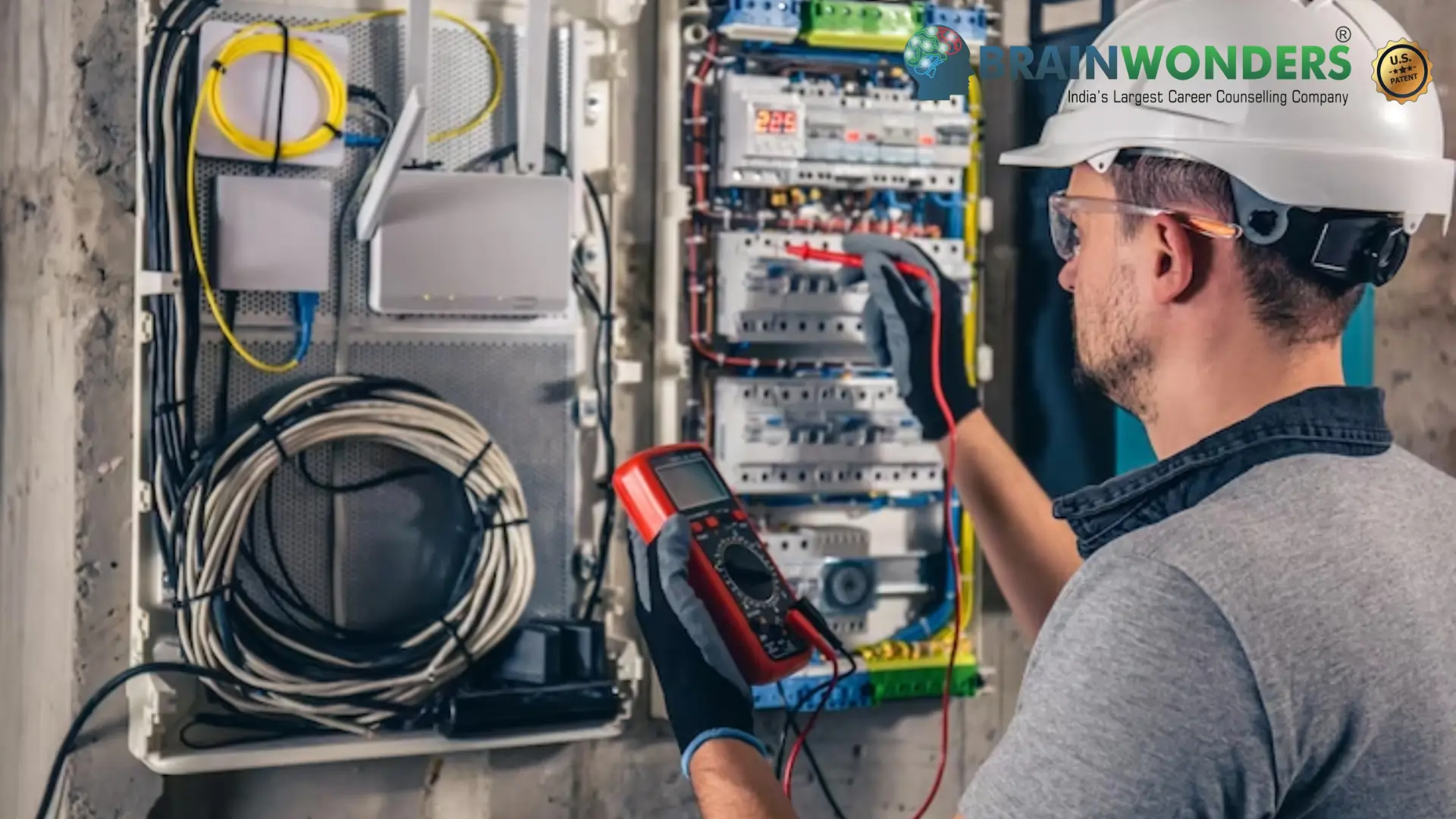How to become a Diploma Electrical
Overview, Courses, Exam, Colleges, Pathways, Salary

Overview
Who is Diploma Electrical ?
Electricity, electromagnetic, and electronics are all topics in electrical engineering. Power, control systems, telecommunications, and signal processing are also covered. To design and build new electrical equipment and systems, solve issues, and test equipment, an electrical engineer uses the physics and mathematics of electricity, electromagnetic, and electronics. Electrical engineers work on anything from small household products to large-scale electrical telecommunication networks, power plants, and satellite communications systems. Computers, robotics, cell phones, cards, radars, navigation systems, building wiring and lighting, and other electrical systems are among the projects that electrical engineers work on.
Typical day at work
What does Diploma Electrical do?
- They may work as electrical technicians, assisting in installing, maintaining, and repairing electrical systems and equipment.
- They can also work as control panel technicians, designing and assembling control panels for industrial applications.
- Other roles include electrical design technicians, assisting in developing and testing electrical systems and circuits.
- Project coordinators, assisting in the planning and execution of electrical projects.
- Diploma Electrical graduates may also work as power systems technicians, ensuring electrical power's safe and efficient distribution.
Abilities and Aptitude needed
What are the skills, abilities & aptitude needed to become Diploma Electrical?
Electrical engineers work in a variety of sectors, with varying skill sets. These abilities might span from fundamental circuit theory to project management. Electrical engineers may require a variety of tools and equipment, ranging from a simple voltmeter to a high-end analyzer to complicated design and production software. They have up-to-date sector understanding and related technical knowledge. They demand project management and multitasking abilities. They should be commercially savvy and approach work with an analytical and problem-solving mindset. They must be able to communicate effectively both orally and in writing to make technical material understandable to non-technical audiences.
Pathways
How to become an Diploma Electrical?
Entrance Exam
Entrance Exam for Diploma Electrical ?
Courses
Which course I can pursue?
Best Colleges
Which are the best colleges to attend to become an Diploma Electrical?
Industries
Which Industries are open for Diploma Electrical?
- Power generation companies
- Electrical equipment manufacturers
- Construction firms, consulting firms
- Government agencies telecommunications
- Automotive, aerospace, and renewable energy industries
internship
Are there internships available for Diploma Electrical?
Internship opportunities are available for individuals pursuing a career as a Diploma Electrical graduate. Gain hands-on experience in electrical engineering, power systems, and maintenance. Assist in installing, testing, and troubleshooting electrical systems and equipment. Learn to read electrical schematics, analyze data, and contribute to developing electrical projects. Develop skills in problem-solving, teamwork, and communication. Collaborate with experienced professionals to gain practical knowledge and enhance your technical skills.
Career outlook
What does the future look like for Diploma Electrical?
Engineering services, manufacturing, telecommunications, research & development, and the federal government are all places where electrical engineers may be found. A normal workweek is 40 hours long, with the possibility of overtime to fulfil deadlines. Project management, such as meeting with clients, calculating budgets, and drafting project schedules, takes up a substantial part of an electrical engineer's day. Computer programmers, electricians, scientists, and other engineers are frequently needed to keep an eye on their work.



